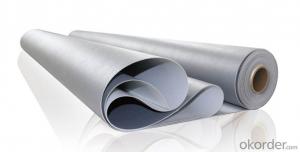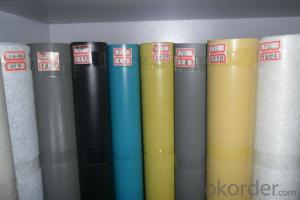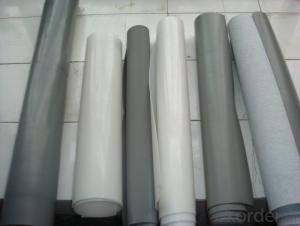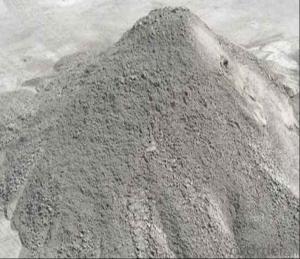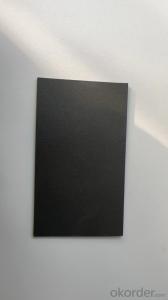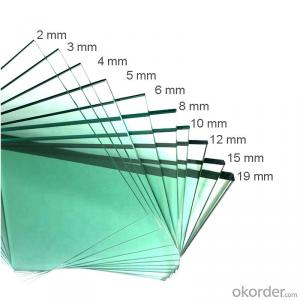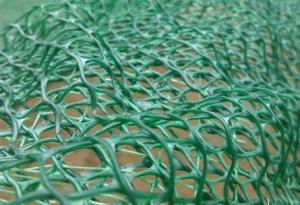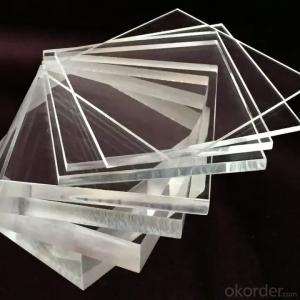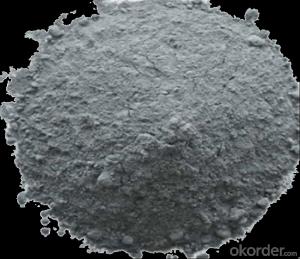Polyvinyl Chloride Punch Waterproof Membrane for Water Filter
- Loading Port:
- China main port
- Payment Terms:
- TT OR LC
- Min Order Qty:
- 5000 m²
- Supply Capability:
- 100000 m²/month
OKorder Service Pledge
OKorder Financial Service
You Might Also Like
Introduction of PVC Waterproofing Membrane
Polyvinyl chloride the pvc waterproofing plastic membrane is a kind of excellent performance of polymer waterproof material,PVC resin as the main raw material,add all kinds of special additive and anti-aging composition,the use of advanced equipment and advanced technology extrusion rolling is made.The product has the tensile strength and elongation high shrinkage of small,low temperature soft good,long life and other advantages, the products wide 1.2m to 3.0m, the thickness of 0.8-2.0 mm(special specifications can be customized),stable performance,reliable quality,construction is convenient.
Specification of PVC Waterproofing Membrane
Length | 20m/roll or customized |
Width | 2.05m |
Thickness | 1.2mm; 1.5mm; 2.0mm |
Type | Homogeneous, Reinforced, Fabric back |
If Exposed | Exposed and Non-exposed |
Color | White, Grey or customized |
Characteristic of PVC Waterproofing Membrane
1.Excellent aging resistance. Service life of roofing material is over 30 years; service life of underground material is over 50 years.
2. High tensile strength, elongation rate is high, the heat treatment small size change.
3. Good low temperature flexibility, adapt to the environment temperature change.
4. Planting roof root resistance good permeability, can make it.
5. The perforation resistance and good resistance to impact.
6 Construction is convenient, wide width lap welding, solid object, and less reliable and pollution-free.
7. Resistance to chemical corrosion resistance, suitable for special occasions.
8. Have good plasticity, convenient edge details.
9. Convenient maintenance and low cost.
10. Light color of the surface reflection ultraviolet irradiation, coil surface west first fewer calories, low temperature.
11.Coil with good moisture diffusivity, condensate PaiShi easily, keep to the moisture, moisture easy eduction.
FAQ of PVC Waterproofing Membrane
a.Can we get some samples before place order?
Answer: We can send the free samples to you by freight collect.
b.How many years can your PVC membrane guarantee?
Answer: We will guarantee the quality for 5 years at least.
c.Which countries you ever export the product?
Answer: We export the PVC membrane to South Africa, Middle east and even European countries.
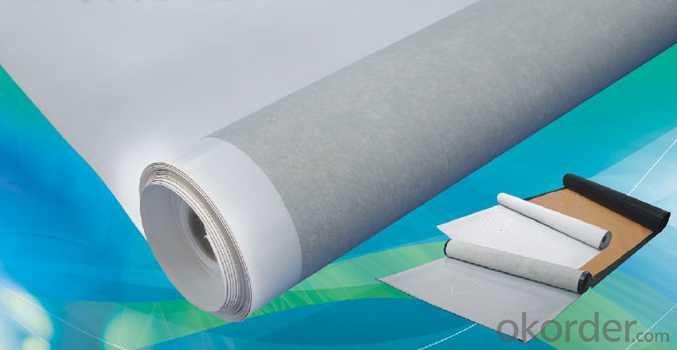
- Q:Waterproof basement is empty shop or full shop
- Basement waterproof construction specification. Basement waterproof acceptance specification, to see their own.
- Q:Can a waterproofing membrane be used for below-grade parking structures?
- Yes, a waterproofing membrane can be used for below-grade parking structures. These membranes are designed to provide a barrier against water intrusion and can be applied to the below-grade walls and floors of parking structures to prevent water damage and leakage.
- Q:Can a waterproofing membrane be repaired if damaged?
- Yes, a waterproofing membrane can be repaired if damaged. The extent of the damage will determine the repair method and whether it can be fixed on-site or if a professional needs to be called in. Small punctures or tears in the membrane can often be patched with a sealant or adhesive, while larger or more severe damage may require a section of the membrane to be replaced. It is important to address any damage promptly to prevent further water penetration and potential structural issues.
- Q:Can waterproofing membranes be used on concrete slabs?
- Yes, waterproofing membranes can be used on concrete slabs. In fact, it is a common practice to apply waterproofing membranes to concrete slabs to protect them from water damage. Waterproofing membranes are designed to create a barrier that prevents water from penetrating the concrete surface. This is especially important for areas that are exposed to moisture, such as basements, balconies, or swimming pools. By applying a waterproofing membrane, the concrete slab is protected from water infiltration, which can lead to cracks, erosion, or mold growth. Additionally, waterproofing membranes can also enhance the overall durability and lifespan of the concrete slab.
- Q:Can a waterproofing membrane be used on stainless steel surfaces?
- Yes, a waterproofing membrane can be used on stainless steel surfaces. Stainless steel is a durable and non-corrosive material that is commonly used in various industries. However, it is not completely immune to water damage or corrosion, especially in harsh environments. Applying a waterproofing membrane on stainless steel surfaces can provide an additional layer of protection against moisture, preventing potential water damage, rusting, and corrosion. It is important to ensure that the waterproofing membrane is compatible with stainless steel and applied correctly to ensure proper adhesion and long-lasting protection.
- Q:Can a waterproofing membrane be recycled or disposed of in an environmentally friendly manner?
- Yes, a waterproofing membrane can be recycled or disposed of in an environmentally friendly manner. Many waterproofing membranes are made from recyclable materials such as polyethylene or polypropylene, which can be recycled into new products. Recycling these membranes not only reduces waste but also conserves resources and reduces the environmental impact of manufacturing new materials. To recycle a waterproofing membrane, it is important to check with local recycling facilities or waste management centers to see if they accept this type of material. Some facilities may have specific guidelines or processes for recycling membranes, so it is crucial to follow their instructions. In cases where recycling is not feasible, disposing of the waterproofing membrane in an environmentally friendly manner is still possible. Many waste management facilities have designated areas for construction and demolition waste, where the membrane can be properly disposed of. These facilities employ techniques to minimize the impact of the waste on the environment, such as containment and controlled disposal methods. It is essential to avoid disposing of the membrane in regular trash or dumping it illegally, as this can harm the environment and contribute to pollution. Proper disposal ensures that any potential pollutants or contaminants in the membrane are managed appropriately, preventing harm to ecosystems and human health. Overall, by recycling or disposing of a waterproofing membrane in an environmentally friendly manner, we can contribute to a more sustainable and cleaner future.
- Q:DTM.E polyester composite waterproofing membrane, cheaper than the asphalt membrane?
- The coil with polyethylene, EVA or TPO as the main material, the upper and lower surface of the membrane using a special process non-woven composite, the construction of the use of Ou Xi Jianke special adhesive, membrane and cement material to form a close waterproof layer, To achieve the perfect waterproof effect.
- Q:Is a waterproofing membrane resistant to punctures or tears?
- A waterproofing membrane is created to resist punctures or tears, being made from robust materials like PVC, TPO, or EPDM, renowned for their strength and damage resistance. These membranes undergo extensive testing to ensure they can endure different environmental conditions and potential causes of punctures or tears, like sharp objects or heavy foot traffic. Some waterproofing membranes even have reinforcement layers or added protection to further strengthen their resistance to punctures and tears. Nevertheless, it is crucial to note that while waterproofing membranes are highly durable, they are not entirely immune to damage. Proper installation, regular maintenance, and avoiding unnecessary stress or impact on the membrane can help extend its lifespan and enhance its performance.
- Q:What is the difference between a self-adhesive and torch-applied waterproofing membrane?
- A self-adhesive waterproofing membrane is a type of membrane that has an adhesive backing, allowing it to be easily stuck onto the surface it is being applied to. It is typically made of a flexible material, such as modified bitumen or rubberized asphalt, and is commonly used for applications such as roofs, balconies, or foundations. The adhesive backing ensures a strong and secure bond, even in challenging weather conditions. On the other hand, a torch-applied waterproofing membrane requires the use of a torch or heat gun to melt the underside of the membrane and adhere it to the surface. This type of membrane is often made of modified bitumen, which softens and becomes adhesive when heated. The heat creates a strong bond between the membrane and the substrate, providing excellent waterproofing protection. The main difference between these two types of waterproofing membranes lies in the way they are installed. Self-adhesive membranes offer a simpler and quicker installation process, as they can be directly applied to the surface without the need for any additional tools or equipment. They are also considered to be a safer option, as they eliminate the potential hazards associated with using an open flame. Torch-applied membranes, on the other hand, require the use of a torch or heat gun, which adds an extra step to the installation process. This method requires skilled labor and proper training to ensure the membrane is correctly melted and adhered to the surface. However, torch-applied membranes are often preferred in situations where a superior bond is required, such as on roofs with a steep slope or in areas with heavy foot traffic. In summary, the main difference between self-adhesive and torch-applied waterproofing membranes lies in the method of installation. Self-adhesive membranes offer simplicity and safety, while torch-applied membranes provide a stronger bond and are often used in more challenging or specific applications. The choice between the two ultimately depends on the specific requirements and conditions of the project.
- Q:Can a waterproofing membrane be used in tunnels?
- Yes, a waterproofing membrane can be used in tunnels. Waterproofing membranes are commonly used in tunnel construction to prevent water infiltration and protect the tunnel structure from damage caused by moisture. These membranes are designed to provide a barrier against water, keeping the tunnel dry and secure.
1. Manufacturer Overview |
|
|---|---|
| Location | |
| Year Established | |
| Annual Output Value | |
| Main Markets | |
| Company Certifications | |
2. Manufacturer Certificates |
|
|---|---|
| a) Certification Name | |
| Range | |
| Reference | |
| Validity Period | |
3. Manufacturer Capability |
|
|---|---|
| a)Trade Capacity | |
| Nearest Port | |
| Export Percentage | |
| No.of Employees in Trade Department | |
| Language Spoken: | |
| b)Factory Information | |
| Factory Size: | |
| No. of Production Lines | |
| Contract Manufacturing | |
| Product Price Range | |
Send your message to us
Polyvinyl Chloride Punch Waterproof Membrane for Water Filter
- Loading Port:
- China main port
- Payment Terms:
- TT OR LC
- Min Order Qty:
- 5000 m²
- Supply Capability:
- 100000 m²/month
OKorder Service Pledge
OKorder Financial Service
Similar products
New products
Hot products
Related keywords
